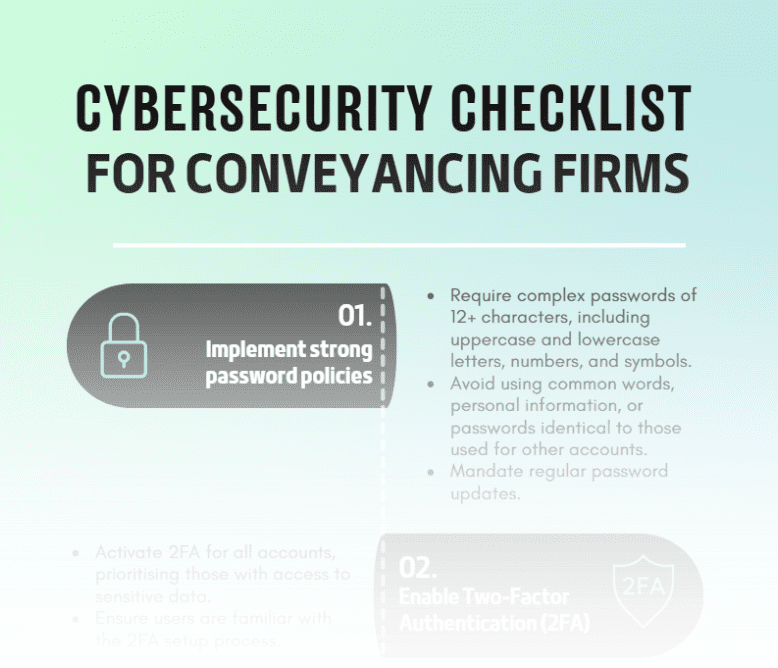As a conveyancer, you will be presented with many fatal mistakes to avoid throughout your career. Whether it be difficult clients, non-responsive vendors, tricky systems or anything else, you will be presented with the pressure to make decisions.
The key to your success is to quickly identify mistakes, learn from them, and prevent the same fatal mistakes from happening again.
While there isn’t a fool-proof plan to career success, there are several common mistakes many conveyancers make that can negatively impact their career.
In this article we discuss the 3 fatal mistakes every conveyancer should avoid.
1. Not ordering pre-purchase reports
A total of 26 per cent of home buyers discovered problems with their home after buying it.
It’s your job to advise your clients to conduct the proper due diligence so they can avoid any problems down the track. While they may see it as an extra cost, it’s tiny in comparison to the investment they’re about to make. And it could make all the difference!
Imagine it for yourself. You just brought your dream home and when it comes time to move in there are termites eating the structure or leaks in the roof.
You don’t want to be blamed for not doing the due diligence for your client before the exchange of contracts.
Ordering pre-purchase reports on behalf of your clients is a great way to add value and to give them peace of mind during a stressful and exciting time.
Thorough due diligence should include research into things that are likely to impact the property such as flood zones, fire zones, pests and planned transport and developments in the area. All of this will affect liveability and resale value.
2. Not putting emphasis on client communication
Just like any relationship, communication is key. Everyone would agree that maintaining client relationships is fundamental.
For lawyers, good client communication can make or break your reputation. Whether you’re taking on a new client, emailing or calling someone with an update, or sending out a bill, every time you communicate with your client you shape their idea of what it’s like working with your firm.
A positive experience can mean the difference between a new business referral and a poor review online.
Many legal professionals don’t think detail is necessary to discuss with their client as it will just ‘confuse them’.
However according to Clio, a report showed that 55 per cent of consumers want to learn more about the legal aspects of a case, while only 2 per cent of lawyers think this is the case.
Legal professionals deal with legal challenges every day, but their clients don’t. By being able to communicate effectively you can help them navigate unfamiliar situations. Two of the best practices are to communicate clearly and be transparent.
It’s easy for things to get lost in translation, so making an effort to ensure your client understands what’s going on, can go a long way towards avoiding unnecessary back-and-forth or misunderstandings.
3. Quoting fees and charging extra
For firms that don’t operate on a fixed fee agreement, this fatal mistake is one you must avoid.
When you give your clients quotes, you need to be as accurate as possible and then if later down the track, there is an unexpected increase of the time needed or search requirement you need to communicate with your client as soon as possible.
We all know how annoying it is to get a quote from a builder or painter on how much a project will cost and then they notify you near the end that it will cost more than originally expected.
Everyone has experienced this in one way or another, so don’t make the same mistake with your clients.
When you’re giving quotes, you need to make sure your client understands what’s included and what isn’t.
Being able to offer your client a disbursement cost list, will give them more piece of mind to know exactly what they’re paying for.
Legal professionals are required by law to disclose how much they charge, how they charge (i.e., flat fee, hourly or another way), and how much the matter will cost.
If you can’t tell them the exact cost, you need to estimate it and let your clients know its an estimate.
All of your quotes should come with a disclaimer that says something along the lines of “if the matter becomes protracted, extra work will be charged at $X per hour”.
That’s to cover you if it turns out that the house your client is buying needs extra work or a dispute is filed.
In any career you can misstep, come across mishaps, or make mistakes. It’s whether or not you learn from those mistakes which make the difference between being successful or unsuccessful in your role.
The key is consistently working to make smart, well-informed decisions in your practice. If you can do that, and remain resilient when you do make a mistake, success will be within your reach.
If you want to learn more about the mistakes to avoid as a conveyancer, download the 7 fatal mistakes every Conveyancer should avoid eBook now.






